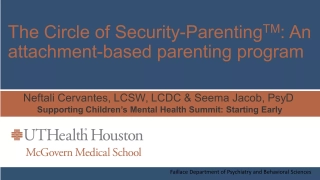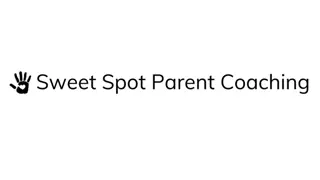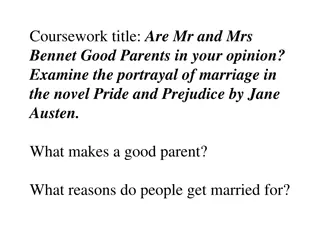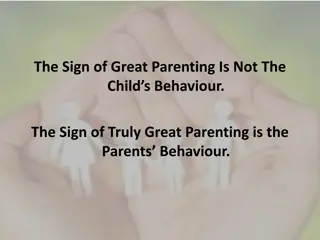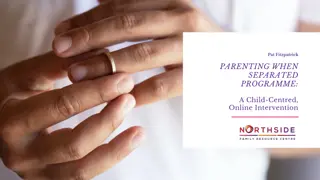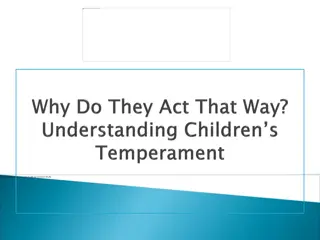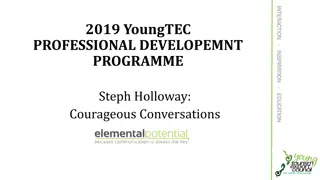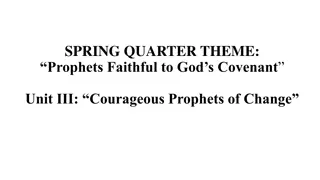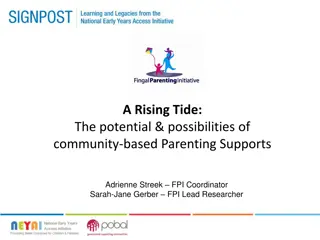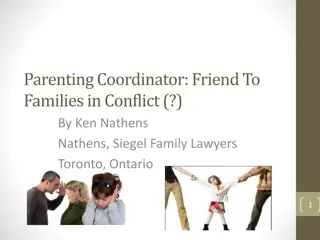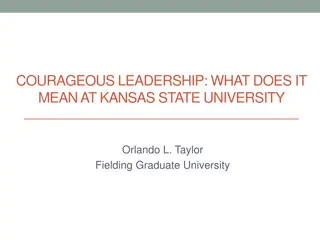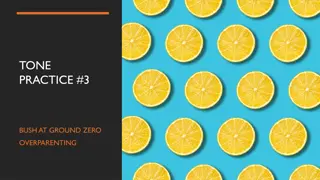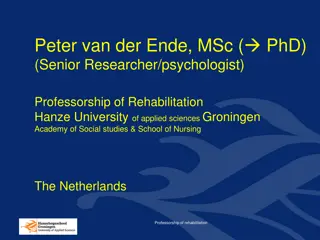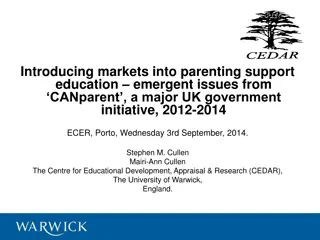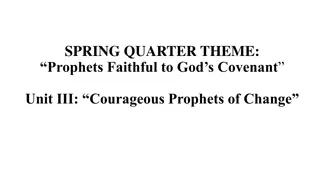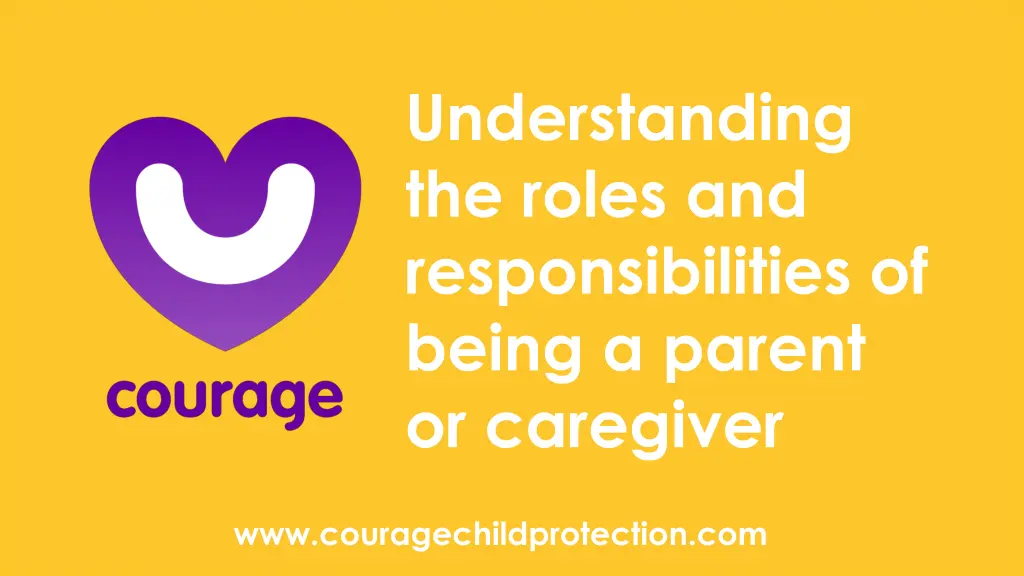
Understanding Parenting Roles and Responsibilities
Learn about the essential roles and responsibilities of being a parent or caregiver, including providing financial support, safeguarding your child's well-being, promoting development, protecting from harm, guiding decision-making, and fostering a loving relationship. Positive parenting approaches are highlighted, emphasizing love, support, reinforcement, and encouragement.
Uploaded on | 0 Views
Download Presentation

Please find below an Image/Link to download the presentation.
The content on the website is provided AS IS for your information and personal use only. It may not be sold, licensed, or shared on other websites without obtaining consent from the author. If you encounter any issues during the download, it is possible that the publisher has removed the file from their server.
You are allowed to download the files provided on this website for personal or commercial use, subject to the condition that they are used lawfully. All files are the property of their respective owners.
The content on the website is provided AS IS for your information and personal use only. It may not be sold, licensed, or shared on other websites without obtaining consent from the author.
E N D
Presentation Transcript
Understanding the roles and responsibilities of being a parent or caregiver www.couragechildprotection.com
Ask yourself How do I define a family? What makes a good parent? 1. 1. 2. 2. 3. 3. 4. 4. 5. 5.
What is the role of a parent?
Parents role? To provide financial support to your child. $ To safeguard & promote the wellbeing of your child. To ensure the health, wellbeing and development of your child.
Parents role? To protect your child from maltreatment, abuse, neglect, degradation, discrimination, exploitation and any physical, emotional or moral harm. To respect, protect and promote the rights and dignity of your child. To guide, advise and assist your child in making decisions for themselves.
Parents role? To guide, direct and secure your child s education and upliftment through intellectual, emotional, physical, moral and cultural development that is appropriate to their age. To apply consistent and fair discipline to your child. To build sound and loving relationships with your child.
Parents role? To inform, involve & encourage your child s participation in their care & protection To accommodate any special needs your child may have. To find a suitable place for your child to live.
The difference between positive parenting and negative punishment
As parents we must choose Don t worry, we all make mistakes How could you be so stupid! over negative punishment positive parenting
Positive Parenting I still love you even when you make bad choices or do the wrong thing I made a very bad choice and did something wrong reassurance of love
Negative Punishment I made a very bad choice and did something wrong You are such a bad child I don t trust you anymore! love is conditional
Positive Parenting This is how you can make better choices understand consequences of behaviour
Negative Punishment If you don t do what I tell you to do, you will be sorry! threats and fear to force compliance
Positive Parenting You have control over your choices and how you behave child in control
Negative Punishment If you don t do what I tell you to do, I will punish you and you will be sorry! try to control child
Positive Parenting How are you feeling? How can I help you solve this problem? parent-child connection
Negative Punishment Next time, I just won t tell you what I did! You always get things wrong! You are so stupid! parent-child disconnection
How can we build our children s self esteem
Fun things you can do to build your child s self esteem
The gratitude chair Each member of your family should take turns to tell your child what they are grateful to them for. Ask your child to sit in a chair in the middle of the room.
The self esteem bowl I am loving I work hard I am kind I am creative I love animals I am helpful I am sporty MY SELF ESTEEM
MY PERSONAL CREST Animal/Plant? Shield? Colour? Motto or Tagline? HEAR ME ROAR! HEAR ME ROAR!
We must always focus on what is in the best interests of the children in our care
YOU MUST ALWAYS: Respect a child s dignity. Be fair and equitable. Protect them from discrimination. Inform, involve and encourage their participation throughout any protection process. Support their disabilities, special needs or chronic illness. Protect a child from harm which includes neglect, abuse or exploitation. Solve a child s problem as quickly as possible. Respect, promote and fulfil their rights at all times. CHECK
YOU MUST CONSIDER: The relationship between a child and their parent or caregiver? The child s need to grow up in a stable family environment? The child s physical and emotional security and development? The child s age, maturity, gender and stage of development? The child s background and current family and social context? The attitude of the parents or caregiver to their child? CHECK The impact any change will have on a child e.g. if separated from parents or siblings? The child s need for education and recreation?
stay strong take www.couragechildprotection.com

